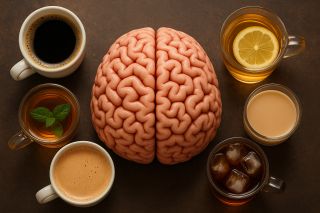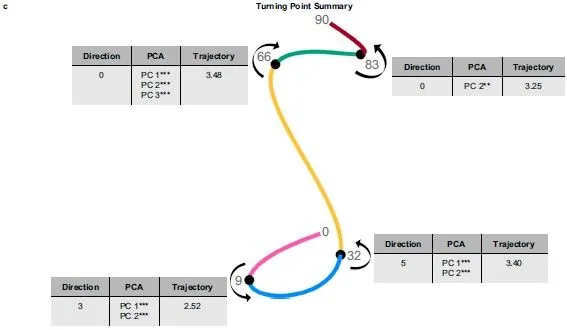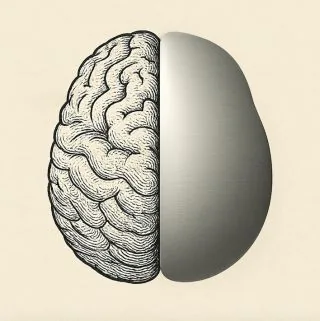As the crisp air of fall rolls in, many of us instinctively reach for something warm to sip. These comforting hot drinks, cold weather favorites often offer a moment of peace in a busy day. But how much do they truly do for our brains? Emerging research reminds us that what we choose to sip matters, especially as shorter days and daily stresses challenge our cognitive resilience.
This guide will explore which beverages can genuinely help your brain this season and which might quietly sabotage your mental clarity. Learn to transform your daily cup into a powerful cognitive ally.
Beyond the Buzz: The Truth About Fall Favorites
Seasonal favorites like pumpkin spice lattes offer a tantalizing aroma and comforting warmth. The spices themselves—cinnamon, ginger, nutmeg, and cloves—are rich in antioxidants and anti-inflammatory compounds. Cinnamon, for instance, has been studied for its potential to reduce insulin resistance and inflammation, both linked to cognitive decline.
However, the average commercially prepared pumpkin spice latte often contains up to 50 grams of sugar. This far exceeds the daily recommended limit for adults and can lead to energy crashes and brain fog. A sudden sugar spike can counteract any potential benefits from the spices.
Better option: Brew your own latte at home. Use unsweetened almond or oat milk, a dash of vanilla, and pure pumpkin spice. You’ll enjoy the familiar flavors without the detrimental sugar overload, giving your brain a true boost.
Optimizing Your Morning Brew: Timing Caffeine for Peak Focus
Caffeine is a well-known stimulant that enhances alertness by blocking adenosine, a neurotransmitter promoting sleep. Yet, the timing of your caffeine intake can significantly impact its benefits. Consuming caffeine immediately upon waking might not be ideal for sustained energy.
Research from the Sleep Research Society suggests waiting 60 to 90 minutes after waking before your first cup. This strategy may prevent adrenal fatigue and support more sustained energy without the jitters (Roehrs & Roth, 2008). Your body naturally produces cortisol, a wakefulness hormone, in the morning. Delaying caffeine allows this natural peak to subside.
A 2025 study also found a positive correlation between moderate coffee consumption and cognitive performance in older adults (Li, 2025). This indicates that when consumed mindfully, coffee can be a valuable cognitive-enhancing sip.
Brain tip: Delay your caffeine until your natural morning cortisol levels begin to level off. You will likely feel more focused and less dependent on that second cup to power through your morning.
The Magnesium Advantage: Fueling Your Brain and Mood
Magnesium is a vital mineral involved in over 300 enzymatic reactions throughout the body, many of which regulate mood and brain function. Unfortunately, nearly half of U.S. adults may not get enough magnesium (Rosanoff et al., 2012). This widespread deficiency can have significant impacts on cognitive health.
This essential mineral plays a critical role in neuroprotection and nerve signal transmission. Low magnesium levels are linked to increased anxiety, sleep disturbances, and fatigue—all common challenges during the fall and winter months. A 2024 trial highlighted that magnesium L-threonate supplementation improved sleep quality and enhanced mood, energy, and cognitive function (Hausenblas et al., 2024).
Try this snack: For a comforting, brain-friendly combo that promotes relaxation and steady energy, warm up with a magnesium-rich blend. Combine dates and pumpkin seeds for a naturally sweet and nutritious treat that supports your mental well-being.
Upgrade Your Cocoa: Smart Sips for Cognitive Power
While traditional hot cocoa is often loaded with added sugars, raw cocoa powder offers remarkable brain-boosting benefits. It contains flavonoids, powerful antioxidants that support cerebral blood flow and cognitive performance (Socci et al., 2017). These compounds have been shown to improve memory and neurovascular function.
A recent review article in 2025 suggested that cocoa flavonoids can acutely improve cognitive function by increasing blood flow to the brain (Ługowski et al., 2025). This makes dark, unsweetened cocoa a true superfood for your mind, especially when you’re seeking warming hot drinks, cold weather relief.
DIY recipe: Mix unsweetened cocoa powder with oat milk or soy milk (which provides choline and B vitamins). Add a touch of cinnamon for extra flavor and health benefits, and sweeten with stevia or monk fruit. Your brain will certainly thank you for this delicious and nourishing upgrade.
Supporting Your Brain’s Natural Detox System
Beyond what we consume, it’s crucial to support the brain’s own detoxification mechanisms. The glymphatic system, the brain’s unique waste clearance pathway, swings into action every night, primarily during deep sleep. This system relies heavily on glutathione, often called the body’s master antioxidant.
Glutathione levels naturally decline with age and stress. Studies have shown that supporting glutathione levels may protect neurons and promote healthy cognitive function (Ballatori et al., 2009). Ensuring adequate sleep and a nutrient-rich diet can help maintain optimal glutathione levels, supporting your brain’s nightly clean-up crew.
Detox note: Your body naturally produces glutathione. You can further support its levels through important dietary sources such as spinach, avocados, and asparagus. Incorporating these foods regularly can contribute to overall brain health.
The Takeaway: Smart Choices for a Sharper Mind
Cozy hot drinks, cold weather sips can absolutely be a cherished part of your daily routine. However, not all beverages nourish the brain equally. By making a few small, intentional shifts in your choices, you can transform your cup into a powerful cognitive ally, rather than a sugar saboteur.
This season, let your mug be more than just a moment of comfort. Let it be an empowering act of brain care, supporting your focus, mood, and overall mental well-being. Choose wisely and enjoy the benefits of a sharper, more resilient mind.
References
Roehrs T, Roth T. Caffeine: sleep and daytime sleepiness.Sleep Med Rev.2008;12(2):153-162. doi:10.1016/j.smrv.2007.07.004. PMID: 17950009
Li J, Yu K, Bu F, Li P, Hao L. Exploring the impact of coffee consumption and caffeine intake on cognitive performance in older adults: a comprehensive analysis using NHANES data and gene correlation analysis.Nutr J.2025;24(1):102. doi:10.1186/s12937-025-01173-x. PMID: 40597402; PMCID: PMC12220005
Rosanoff A, Weaver CM, Rude RK. Suboptimal magnesium status in the United States: are the health consequences underestimated?Nutr Rev.2012;70(3):153-164. doi:10.1111/j.1753-4887.2011.00465.x. PMID: 22364157
Hausenblas HA, Lynch T, Hooper S, et al. Magnesium-L-threonate improves sleep quality and daytime functioning in adults with self-reported sleep problems: a randomized controlled trial.Sleep Med X.2024;8:100121. doi:10.1016/j.sleepx.2024.100121. PMID: 39252819Erratum in:Sleep Med X.2025;9:100141.
Socci V, Tempesta D, Desideri G, De Gennaro L, Ferrara M. Enhancing human cognition with cocoa flavonoids.Front Nutr.2017;4:19. doi:10.3389/fnut.2017.00019. PMID: 28560212; PMCID: PMC5432604
Ługowski W, Samek J, Bartoszewska K, et al. Can dark chocolate improve our cognitive skills? Evaluating the impact of cocoa flavanols on function of the brain: a review article.Int J Innov Technol Soc Sci.2025;2(46). doi:10.31435/ijitss.2(46).2025.3279
Ballatori N, Krance SM, Notenboom S, Shi S, Tieu K, Hammond CL. Glutathione dysregulation and the etiology and progression of human diseases.Biol Chem.2009;390(3):191-214. doi:10.1515/BC.2009.033











